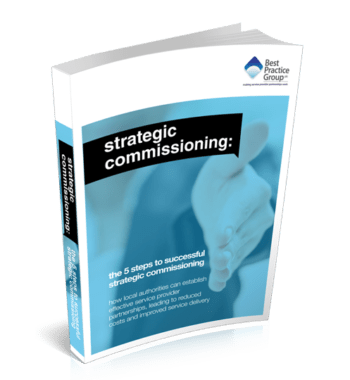 Articles on the subject of a successful outsourcing partnership tend to deal with the timeline in segments – some will talk about essentials at the inception stage, while others will wax lyrical about ways to keep your supplier on your side post-contract.
Articles on the subject of a successful outsourcing partnership tend to deal with the timeline in segments – some will talk about essentials at the inception stage, while others will wax lyrical about ways to keep your supplier on your side post-contract.
Our experience in over 500 of these types of relationships, is that a relationship drives maximum value and has the greatest opportunity for success only when you take a ‘macro’ view of the broader cycle.
This article takes an overview of how to be clear about your business expectations, and how to build and maintain a durable outsourcing partnership. Both setting the right environment and behaviours at the outset and optimising the effectiveness of that relationship once it gets going play an equally important role in its potential for success.
Partnering with a strategic supplier is a complex affair. Finding an effective way of working when the fundamental principles of the sector, organisation and even the individuals you’ll be collaborating with, may be significantly different from your own, so it can be challenging and may well be a constant juggling act throughout the relationship.
This is why it’s so important to have a strategy for developing the right foundations for a productive relationship, fostering the right behaviours in that relationship and creating mechanisms for advanced warning of the potential for issues in that relationship alongside management processes to realign it, if and when needed, as you proceed.
Building and maintaining a successful outsourcing partnership
The following thirteen steps are an evidence-based overview of good practice measures you can employ to achieve these ends.
| Start your outsourcing partnership on the right foot | 1. Clarify your vision The costs of change. Every time an objective is amended, a poorly considered element of the service is revealed or a service consumer’s perspective differs from that assumed at the outset, there’s likely to be a cost involved. To keep costs down during a project, time invested at the beginning to clarify your vision will keep changes to a minimum. The way to clarify your vision most effectively is to ask the right questions of the right people to gain a clear enough perspective to form a defined view of what outcome you seek from this engagement. |
| 2. Quantify your objectives Visions tend to be big picture and benefit-led in nature. Once you know what general direction you need to head off in, you must employ some numeric detail to help you determine where you are on your journey and when you have achieved your objectives. Calculate the relative differences between where you stand today and where you expect to be at a defined point in the future – in other words, what does success look like to you in numeric terms? |
|
| 3. Select only the best supplier partner Only once you know exactly what outcomes you are looking for and the implications of not achieving them, can you explore an early market engagement with potential suppliers. Use this exercise to inform and further draft a requirements document that not only clearly explains what’s expected of a supplier, but starts the process of filtering out those most likely to suit your needs. From this position you’ll also have the insights needed to ask the right questions of your supplier prospects to better determine best fit to achieve your business outcomes. |
|
| 4. Define a clear and agreed contract A contract should be a meeting of minds, a document that starts with everything that’s been agreed and finishes with wording that everyone understands and buys into which will guide the outsourcing partnership through good times and bad. A well negotiated contract is a collaborative document, a fair document and has clarity in layman’s terms. Most importantly, it needs to drive the ‘right behaviours’ between client and supplier. It’s a document that may well need to weather a storm or two along the way and should be strong enough to withstand scrutiny. This is not a static document, but one that should be reviewed and updated at least on a biannual basis to ensure that it is aligned to the realities of the relationship and the environment in which it exists. |
|
| 5. Build an Intelligent Client Function (ICF) You may know them by another name, but we refer to the cross-departmental team of project specialists as the ICF team – the team that is responsible for fostering relationships with their opposite numbers on the supplier side to build bridges, identify challenges on the horizon and realign the mechanisms that impact on trust and productivity. Choose them carefully, listen to their insights and give them the autonomy they need to make sure that the relationships you create with your suppliers are as strong as they can be. |
|
| Optimising the governance and management of your outsourcing partnership for best results | 6. Maintain open lines of communication Misunderstandings over requirements are the single biggest cause of strife within strategic relationships. If you do not understand how your supplier thinks, you cannot hope to communicate at their level and if you are not plugged into your supplier’s grapevine you may miss that there has been a misunderstanding. Good governance is all about spotting issues early enough and how well you are able to communicate the necessary realignment when you have. |
| 7. Eliminate the vague and ambiguous A lack of clarity and detail increases the chances of someone in the process misinterpreting what’s expected of them, or, worse still, devaluing the protection you believe you have from documentation that you may rely on for legal recourse at some point. Good communication means more than just people speaking with one another: it’s the capacity for misunderstanding that is afforded by every verbal or written interaction, document and contract that someone may be guided by. So, be careful in your calls and review all your agreements to make sure, as much as is possible, that ambiguities are eliminated. |
|
| 8. Change happens, embrace it It’s important to recognise that for a multitude of reasons change happens in any outsourcing partnership – environmental, political, financial and others – and the capacity you have to adapt to this new reality will impact on the success of your project. Changes, requested or otherwise, need to be identified, justified and quantified. Once agreed they also need to be carefully incorporated within all working documents to ensure that: a) all concerned have a full and complete understanding of what has changed and why alongside their individual responsibilities, and b) that these changes do not have any negative impact on the existing document’s ability to offer guidance and recourse in good times and bad. |
|
| 9. Appreciate that limitations exist As time passes in your relationship two things will happen. Firstly, you will gain a clearer appreciation for the capacities of your supplier – their true skills, manpower, motivations, propensity to innovate and so forth. And secondly, as mentioned above, change will happen which could put a greater strain on the resources and capabilities of your supplier. This means that as knowledge and environment change, so must both the direction of your project and your appreciation of your supplier’s ability to achieve goals along your KPI schedule. This may necessitate a little more flexibility than may have been considered initially. |
|
| 10. Strengthen your commercial trust A relationship is more than the sum of the contractual agreements you have between you and the role you play each day. It’s the rapport you build and the bond you create which determines the willingness of your supplier partner to go further for you, their buy-in to the relationship. Step one to developing more depth in your outsourcing partnership is to foster greater commercial trust. This essentially means doing all of the things you would need to do to evidence that you are trustworthy and to minimise opportunities for your supplier to believe that you are not. |
|
| 11. Champion firm pragmatism Always take a highly pragmatic approach to challenges you face in your outsourcing partnership. Recognition that it is not always your supplier’s fault is a good start. Analysis of the events that led up to an issue, or failing, may well reveal a contribution from your side as well. If this is the case, it’s important to enter into any discussions with your supplier in the spirit of collaborative firefighting and realignment, not blame. Poor performance and/or behaviours must, though, be quickly addressed and strongly discouraged. Strength and speed here will prevent the creation of an environment where such things are accepted or even encouraged because of your lack of action. |
|
| 12. Be reliably consistent in your approach Nobody likes being told that they have done something wrong. Emotions can become heightened and pushback is almost a given, but what will make matters worse is inconsistency. This can lead to confusion, annoyance and feelings of preferential treatment and favouritism which in turn can erode commercial trust. Clearly define your relational governance strategy and stick to it so every action and response can be explained in the context of already agreed processes. |
|
| 13. Intuitive behaviour management The success of your outsourcing partnership will be determined by the ongoing commitment of your strategic supplier and its personnel. Over time motivation can wane and poor practices may creep in, so it makes sense to have a full suite of rewards and ramifications built into your agreement and the in-house monitoring to determine when they should be applied. Speed of reaction and consistency with which you tackle each incident will likely drive the right behaviours from your strategic partner. Though it is important to prioritise resolution over ‘blame’ every time, implementing a ‘fix first, discuss blame later’ approach. |
What now?
The thirteen steps above merely scratch the surface of this immense topic, but the essence of our message is to start with a collaborative foundation and maintain your standards. Many outsourcing partnerships last for five years or more, so even small errors in strategy at the outset, or deviations from the path along the way, can escalate into much larger challenges over time.
As always, the devil is in the detail. Time invested in clarity and communication of vision and outcome specifics at the outset will set you on a better path, and firm but fair management along a defined roadmap governed by a clear and agreed set of parameters will ensure that even the toughest of times can be weathered together.
Should you wish to discuss any of the above in greater detail, you can book a meeting by contacting us on 0845 345 0130 or email advice@bestpracticegroup.com

